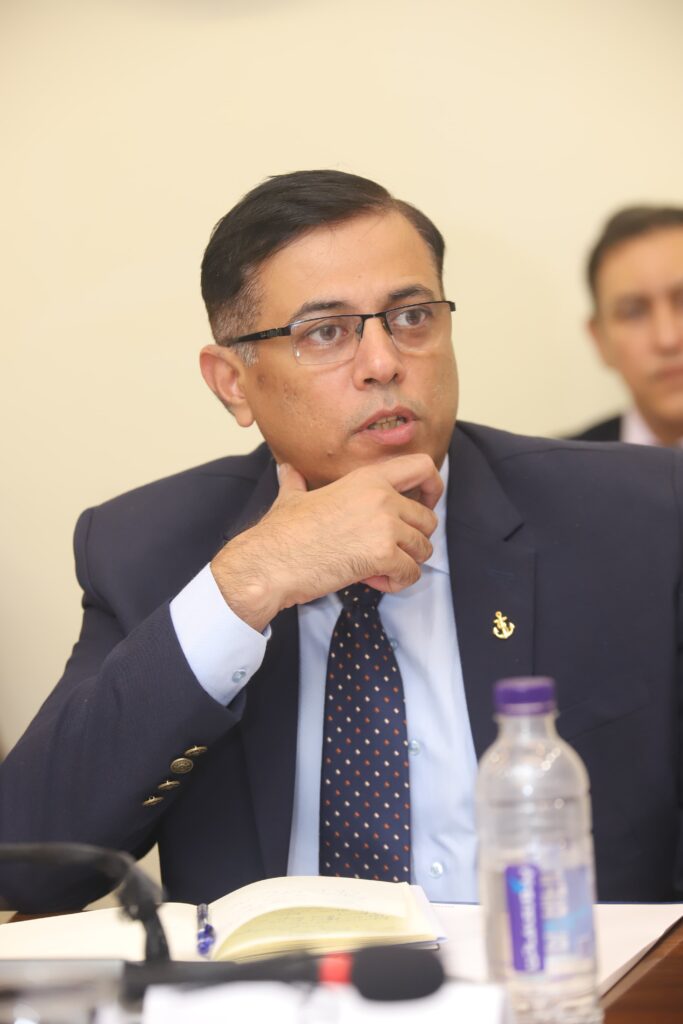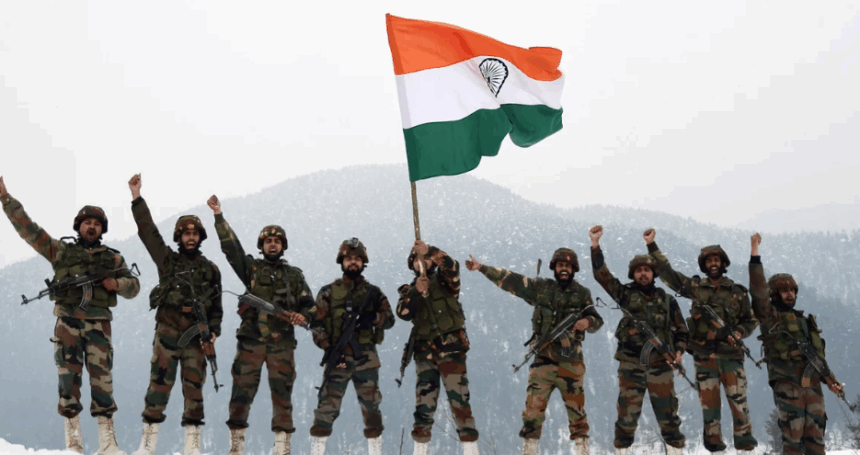Ehsan Ahmed Khan[1]
In a vivid and carefully curated narrative, India projects to the world its image of a democratic and masculine powerhouse, posturing itself as the self-proclaimed net security provider and a first responder in the Indian Ocean Region. It boasts of itself as a counterweight to China, bloated by overwhelming US support. However, behind this diplomatic veneer lies a growing aspect of India’s strategic culture that is rooted in a hybrid of Kautilyan realpolitik and Machiavellian opportunism. India prioritizes power maximization, covert subversion, and regional hegemony over the diplomatic norms it purports to uphold. Kautilya argued in the Arthashastra that a king must use deceit, sabotage, and manipulation, referred to as ‘saam, daam, dand, bhed’ (persuade, purchase, punish, and exploit the weakness) as Upayas of statecraft. Niccolò Machiavelli, centuries later, echoed his thoughts in The Prince on the use of manipulative and ruthless tactics as preferred tools of diplomacy, suggesting that power should be pursued by any means necessary with a willingness to use deceit and cruelty. Under the Bharatiya Janata Party (BJP), India has fused these traditions into a doctrine that leverages covert operations and denies culpability behind a smoke screen of victimhood and distraction from its pervasive and often overlooked misconduct.
The modern-day manifestation of this doctrine is India’s use of its external intelligence agency, the Research and Analysis Wing (RAW), as an extension of its foreign policy apparatus. While India claims to be a victim of terrorism, it has simultaneously conducted widespread covert operations targeting its neighbours. Pakistan has long borne the brunt of these efforts. The most infamous example is Commander Kulbhushan Jadhav, a serving Indian naval officer captured in Balochistan in 2016. His confession revealed India’s hand in funding, directing, and facilitating terror activities inside Pakistan, including support to anti-state groups like the Balochistan Liberation Army (BLA) and Tehrik-i-Taliban Pakistan (TTP). Yet Jadhav is far from an isolated case. Over the years, multiple RAW operatives have been arrested in Pakistan, including Sarabjit Singh, convicted of deadly bombings; Ravindra Kaushik, who infiltrated the Pakistan military in the 1970s; Kashmir Singh, Surjeet Singh, and numerous others. Each of these operatives represents a different chapter in a long-standing pattern of Indian state-sponsored subversion, contradicting New Delhi’s repeated claims of innocence. In Bangladesh, India recruited more than a 100,000 RAW agents to control Bangladeshi government and foreign policy under 15 years of the tyrannic rule of Sheikh Hassina.
This trend is not limited to the subcontinent. India’s growing appetite for influence and destabilization now extends globally. Canadian Prime Minister Justin Trudeau openly accused Indian agents of orchestrating the assassination of Hardeep Singh Nijjar on Canadian soil, a serious charge that India has yet to credibly refute. Vikas Yadav, another RAW agent, was charged in the US in October 2024 for attempting to kill Gurpatwant Singh Pannu, a Khalistan leader. In Qatar, eight former Indian Navy officers were convicted for espionage in a sensitive case involving Israeli submarine technology.
Perhaps most damning is the recent revelation from Iran, where scores of Mossad-linked spies were arrested, many allegedly Indian nationals, amidst the 2025 Iran-Israel plus US conflagration. India has positioned its agents under cover in diplomatic, trade, and development missions. Known for being a security state, Iran’s counterintelligence is well fortified against US and Israeli infiltration. It was these RAW agents providing accurate actionable intelligence to Mossad for a series of high-profile assassinations inside Iran. Confession of Kulbhushan Yadav, who operated from Bandar Abbas for covert operations in Pakistan, is also a testimony to RAW’s third-country operation within Iran. India’s state-sponsored policy of covert operations on foreign soil screams of Indian duplicity and places India in the category of a regional destabilizer.
Parallels between India and Israel are striking. Both share an ultra-nationalist oppressive ideology that justifies internal repression and external aggression. Under Hindutva and Zionist influence, both routinely violate human rights and international norms and refuse to be held accountable. Both deliberately weaponize the victim narrative while actively engaging in state-sponsored violence. India’s silence on Israel’s genocide in Gaza and distancing itself from a statement issued by SCO condemning Israeli strikes against Iran reflects not neutrality but tacit and hypocritical approval of an international order where might trumps morality and squarely places India in the list of “Immoral” under the VUCAII framework.
India is undeniably a global power behind US, Russia and China, with a population of over 1.4 billion, a thriving economy, and a blue-water navy armed with a robust nuclear arsenal. But power without responsibility is perilous and reckless. When guided by a strategic culture steeped in Machiavellian arrogance and Kautilyan deception, such power becomes dangerous not just to neighbours but also to the broader international order. India’s hegemonic aspirations are driven more by strategic narcissism than by a quest for status as a global leader. It seeks a hegemonic status through coercion, contestation and condescension rather than cooperation and peaceful coexistence. Its foreign policy is no longer about responsible engagement but radiates aspirations of regional domination and creating regional isolation. It is this mindset imbued with the craving to reshape the region in its image that poses the greatest threat to South Asian stability. In this context, India’s ambitions to be the net security provider in the Indian Ocean Region and the first responder to regional instability appear hollow. How can a state that amasses disproportionate military hardware, operates death squads on foreign soil, and actively engages in espionage, sabotage and proxy warfare in neighbouring territories be trusted as a stabilizer? How can it champion international law while consistently willfully violating it? It so appears that though imbued with attributes of global power status, it lacks the diplomatic maturity and sacrosanctity for norms of good world order.
This is where the West, particularly the United States, must take heed. In its eagerness to build India as a bulwark against the growing might of China, Washington risks empowering a partner that behaves more like a rogue state than a responsible stakeholder. India is not simply a counterweight to Beijing; it is fast becoming a Frankenstein’s monster, feeding off strategic indulgence and unearned impunity. If the West continues to turn a blind eye to India’s violations and covert aggression, it is not just enabling a regional hegemon; it is nurturing a global threat to peace. As with every “naughty child” left unchecked, India, the metaphorical naughty boy of the neighbourhood, will eventually cross a line too far. It is time to ask: In cultivating India as a strategic ally, is the world feeding the wrong beast?
[1] Ehsan Ahmed Khan is PhD scholar of International Relations at the School of Integrated Social Sciences, University of Lahore, and Deputy President Maritime Centre of Excellence at Pakistan Navy War College, Lahore, Pakistan. He has published numerous articles on national platforms. His areas of research include the geopolitics of South Asia, Military History, and Strategic studies.

***GEOPOLIST – Istanbul Center for Geopolitics offers diverse viewpoints. The opinions expressed in this text are not necessarily shared by GEOPOLIST.***







